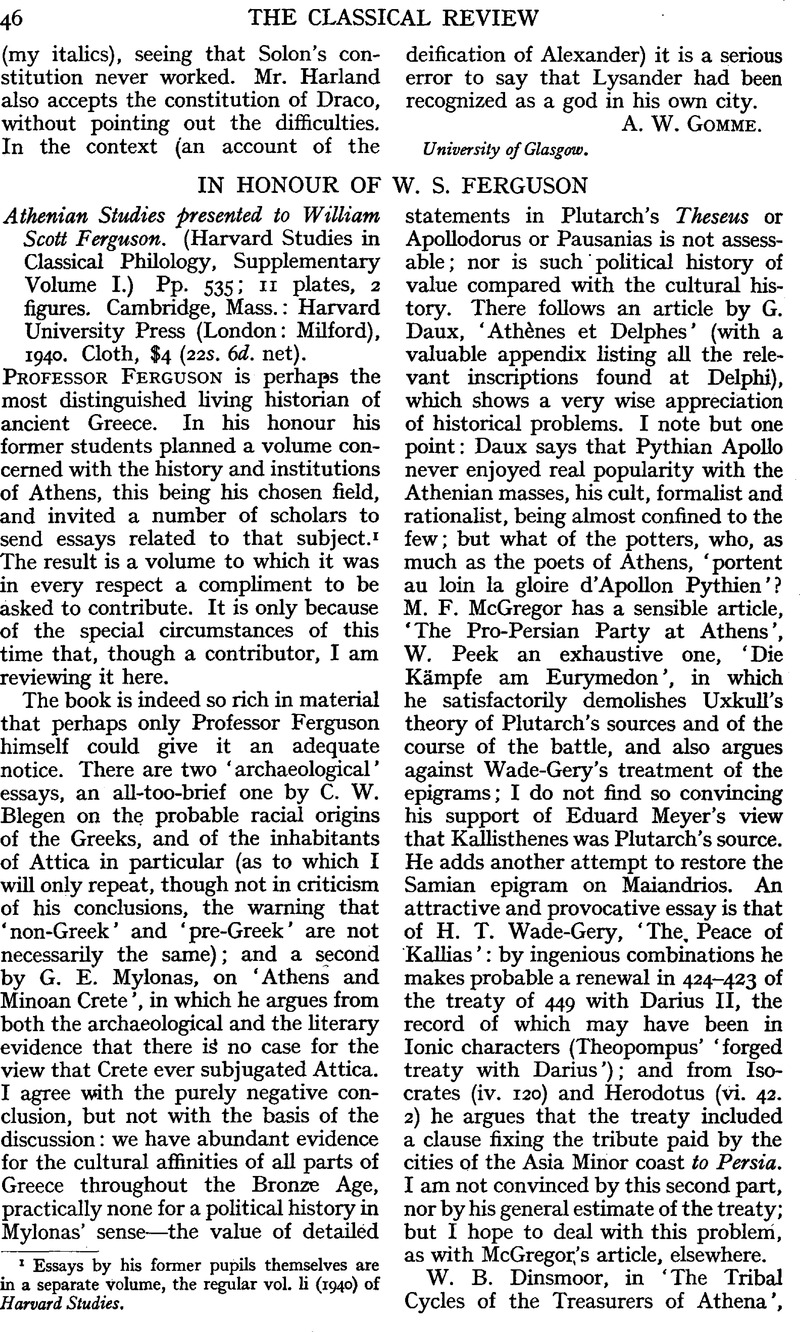No CrossRef data available.
Article contents
In Honour of W. S. Ferguson - Athenian Studies presented, to William Scott Ferguson. (Harvard Studies in Classical Philology, Supplementary Volume I.) Pp. 535; II plates, 2 figures. Cambridge, Mass.: Harvard University Press (London: Milford), 1940. Cloth, $4 (22s. 6d. net).
Published online by Cambridge University Press: 27 October 2009
Abstract

- Type
- Reviews
- Information
- Copyright
- Copyright © The Classical Association 1943
References
page 46 note 1 Essays by his former pupils themselves are in a separate volume, the regular vol. li (1940) of Harvard Studies.
page 47 note 1 With occasional overstressing: Thuc. vii. 27. 3–4, on the ravaging of Attica, ‘written after 404, is relative and does not annul his earlier pronouncements (ii. 57, ill. 26); it cannot therefore be said to be consistent with the absolute assertion of the historian of Oxyrhynchus (12. 5) that the country had suffered but slight injury in the former invasions’. How can an assertion about slight injury in former invasions be absolute? And to say, as Bloch does later, that this could not have been written by Androtion because he says (fr. 45) that the Lacedaemonians spared the μоρίασ, and so implies that they spared nothing else, is perverse.
page 47 note 1 Jaeger stresses the similarity of Isocrates' ideas and those of Theramenes; and in this connexion writes, ‘Aristotle (in the ᴼθΠ.) praises the measure (the repeal of the anti-Areopagus laws by the Thirty) as we should expect him to do, for he distinguishes throughout Theramenes and his policies from the rest of the Thirty, and tries to prove that the usual condemnation of this statesman by the Athenian democrats of the fourth century was undeserved’ (ᴼθΠ 28. 5). It was the oligarchs' condemnation of Theramenes which Aristotle must have had in mind: ‘nearly all agree that Nicias and Thucydides were excellent statesmen’—does ‘nearly all’ include the democrats? The oligarchs said that Theramenes more than once sold the pass to the enemy.




